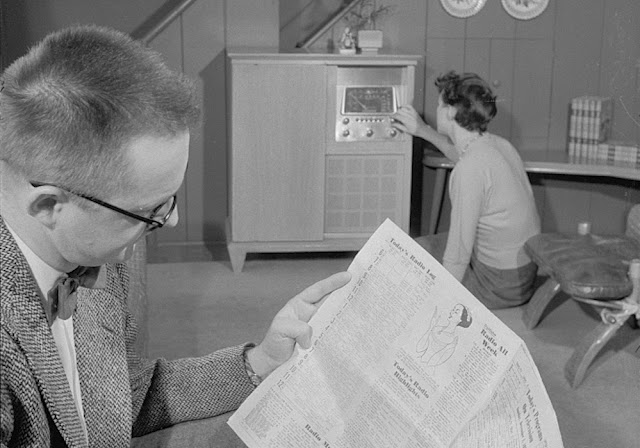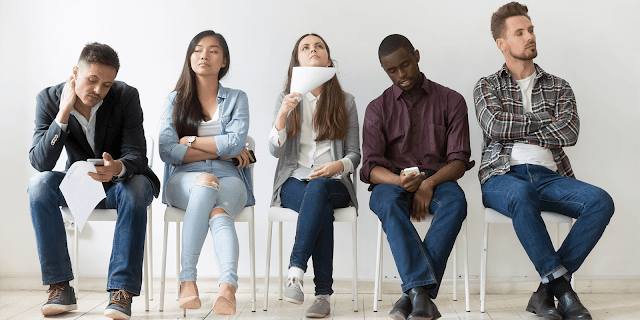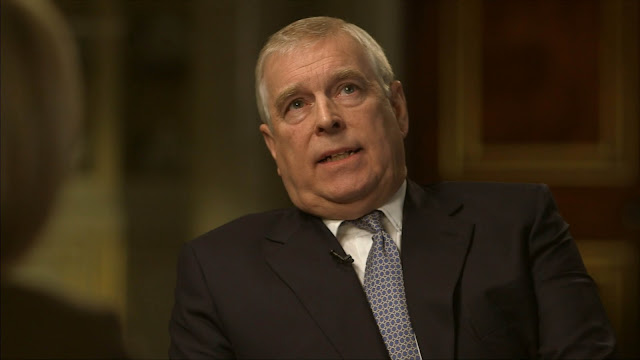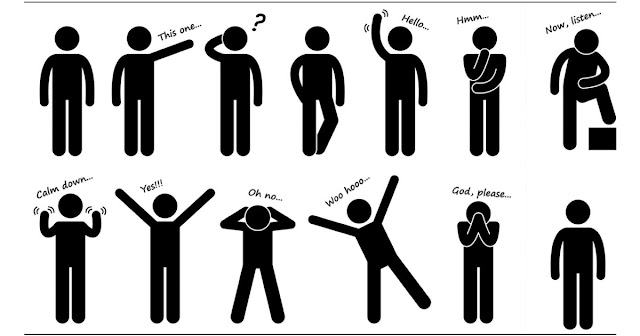1. What do you know about the Declaration of Independence? Who wrote it? What philosophies did it grow out of?
The second paragraph of the Declaration of Independence reads;
"We hold these truths to be self-evident, that all men are created equal, that they are endowed by their Creator with certain unalienable Rights, that among these are Life, Liberty and the pursuit of Happiness. ——
2. What are unalienable, or inalienable rights?
Do people have fundamental rights? Is there a law to nature? Are there certain rights that we have as human beings? What are they?
Natural Law in a nutshell forbids force or fraud to interfere with someone else's natural rights, and is aligned with the Non-Aggression principle.
Natural Law says our human rights come from the creator. Can someone still have fundamental rights even if they don't believe in God?
Thomas Jefferson wrote the Declaration of Independence and once said, "my mind is my own God." He also edited the New Testament and created a slim book called 'The Moral Teachings of Jesus of Nazareth", nicknamed the Jefferson Bible.
Are some natural rights higher than others? For instance if a starving man steals a pie from a shopkeep to feed himself, is his right to live greater than a shopkeep's right to own a pie?
3. Aquinas said, 'Natural Law is like an onion.' What could he have meant?
4. Ever heard of the period of history known as the Enlightenment? Or the philosopher John Locke? John Stuart Mill? Jean-Jacques Rousseau?
Rousseau was quoted as stating, "Man was born free but everywhere he is in chains."
While the philosopher Hobbes said institutions of the state there would be, "No arts; no letters; no society; and which is worst of all, continual fear and danger of violent death; and the life of man solitary, poor, nasty, brutish, and short."
4. What were some reasons that the founders wrote the Constitution and the Bill of Rights?
What was the Stamp Act?
In a summary, the Stamp Act was part of the Intolerable Acts, where the King treated the Colonists harshly and regarded them as tax cattle, not deserving of representation.
Some smart students at the University of New jersey, which is now Princeton, did some math and figured out it was more expensive to enforce this Act than what was got for monies collected.
What are some reasons that the King may have continued to enforce it?
6. With treatise like the Declaration of Independence, fiery rhetoric like Patrick Henry's "Give me Liberty or Give me Death" speech and copious pamphlets distributed asserting Natural Rights; the Colonists fought a Revolution in 1776.
It's the summer of 1787 there's a constitutional convention in Philadelphia. The supreme law of the land was written in secret, much of what we know about it comes from James Madison, the scrivener. It is from James Madison's notes that courts often look when interpreting the Constitution and the Bill of rights, both of which he wrote. Some of the convention took notes, but Madison's are the most complete, released after his death.
The 1st Amendment to the Constitution states,
"Congress shall make no law respecting an establishment of religion, or prohibiting the free exercise thereof; or abridging the freedom of speech, or of the press, or of the right of the people to peaceably assemble, and to petition the government for a redress of grievances."
What is the most important word in that sentence?
(It's a trick question 😏)
Hint: Why does the Amendment use the words 'the people' instead of 'the citizens'?
7. How many Amendments can you remember?
8. We talked about the Stamp Act, which Amendments came from that over reach by the King?
The Constitution was somewhat based on common law that grew out of the Magna Carte in Britain. (Which meant British people living in Britain had more rights than the Colonists.)
Can you see any reference to Biblical law in the 6th and 8th Amendment?
If Congress repeals the First Amendment, do we still have the right to free speech?
If Alabama repeals the law against murder, can someone be charged for murder?
9. Let's look again at the 9th and 10th Amendment:
The 9th Amendment says,
" The enumeration in the constitution, of certain rights, shall not be construed to deny or disparage others retained by the people."
What does that mean? Is it like an onion?
10. The 10th Amendment states,
"The powers not delegated to the United States by the Constitution, nor prohibited by it to the States, are reserved to the States respectively, or to the People."
What is the purpose of the 10th Amendment?
11. Article 1, Section 8 of the Constitution gives us the Enumerated Powers, here's a summary of the Federal Government's roles:
To lay and collect taxes; pay debts and borrow money; regulate commerce; coin money; establish post offices; protect patents and copyrights; establish lower courts; declare war; and raise and support an Army and Navy.
Why did the Founding Fathers want a limited Federal Government?
12. Two true stories to illustrate the importance of checks and balances:President John Adams was afraid that the French would cut off his head like they did Louie the 16th. The requirement to become a citizen was living in America for one year and farming 5 Acres, unless you were French then it took 14 years. In 1798, fearing that a war with France was eminent, Congress passed the Alien and Sedition Acts. The ACT said anyone who uses words to characterize the President or Congress or government untruthfully shall face fines or 2 years in jail. This coming from the same generation who wrote the Constitution and the Bill of Rights.
John Adams was getting fat and his wife knitted him long flowing purple robes, he then attached golden applets to the robe, looking like some purple military royal blob. One day while walking down the street, a congressman from Vermont named Matthew Lions said, " good morning your pomposity," as Adams passed. A week later Lions brings the press with him and this time Adams is walking down the street with his wife when Lions says, "good morning your rotundity."
Under the Alien and Sedition Acts he is tried in Boston even though it happened in Washington (in the Declaration of Independence one of the grievances against the King is being taken to far away lands to await trial) and is convicted. He runs for office from his jail cell and wins. Jefferson is now president and he pardons him and seven others that were charged under this act. Lions is given back his 480 acres of land.
Another story is
No one knows how the War of 1812 started, either Britain and Canada invaded to try to take us back or we invaded Canada and Britain showed up to try and show us our place. Either way it was a mess. There were platoon squirmishes. The White House even burned down.
There was fighting all over the country and in Upper Marlboro Maryland a platoon of British soldiers marches in and captures five American militia men. The British take their guns and holds them hostage and says unless the town surrenders they will be hanged at dawn. The mayor of the town orchestrates the capture of five drunken British soldiers in the middle of the night and announces they will be hanged at dawn.
Mayor Tom Hodges then unarmed and unaccompanied walks into the headquarters of the British platoon and says to the captain "I'll make you a deal..."
The soldiers are freed and months later the war is over. There's a great celebration. Mayor Tom hodges, the Grand Marshal of the ceremony, gives a tremendous speech with big Applause. As he walks off the stage he's met by two officials. One gives him an indictment and the other puts him in shackles.
The mayor is charged with treason and providing Aid and comfort to the enemy during wartime for returning the enemy's soldiers. Two weeks later there's a trial. The judge was the guy who introduced the mayor at the parade, Jury was at the parade, prosecutor was at the parade. The prosecutor stands up and says the indictment comes from washington, we all think the mayor is a good guy, but let's face it he did do what the indictment says, he committed treason.
The defense says the mayor's a great guy, he saved human life. Judge says to the jury I've never said this before, but gentleman we reserved a room in the tavern across the street, after you finished the meal, The Tavern keeper has prepared his best bottle of ale, and after you finish the ale you are too deliberate on the mayor's fate.
The jury Foreman raises his hand and stands and says we don't have to deliberate, we'll take the ale but we've already come to a decision, the verdict is not guilty.
This is the first example and published opinion of jury nullification in American history, a bunch of farmers in Upper Marlboro Maryland saying this is positivism run amok.
That's the good side but here's the bad side, the justice department has a policy with treason (there have only been seven successful prosecutions), the president has to sign off on the trees in charge. Who was the tyrant President who signed it?
Answer, James Madison.
The scribe who wrote the Constitution in the Bill of Rights
What is the takeaway from these two stories?
Answers:
1. Declaration of Independence was written by Thomas Jefferson and later edited by the committee of 5; John Adams, Benjamin Franklin, Roger Sherman, and Robert Livingston. It grew out of an ancient tradition going back to Aristotle, Augustine and Aquinas. and ideas of the enlightenment, primarily John Locke, Jean-Jacques Rousseau, and John Stuart Mill, and contributors such as Voltaire, Hume, Hobbes, Kant.
2. Block's Law Dictionary defines Inalienable as: Not subject to alienation ; the characteristic of those things which cannot be bought or sold or transferred from one person to another, such as rivers and public highways, and certain personal rights; e. g., liberty. Inalienable rights is defined as: the term given to the fundamental rights accorded to all people.
Natural Law Theory started with Aristotle, a pagan, who said it comes from KNOWLEDGE and EXPERIENCE and it is with our senses that we can tell good from evil when we look at it. Then Augustine, a Roman Catholic Saint, said it is from REVELATION that we know right and wrong, through the teachings of Jesus Christ. After that, Aquinas proposed it was REASON. In order to reason we need to be able to exercise certain freedoms, like the freedom of thought, speech, publication, travel, privacy; rights that couldn't exist if we didn't have the natural law. Aquinas rejects arguments of revelation for reason, it matters not if someone is religious to understand the argument.
The opposite of Natural Law is Positivism, which says as long as the lawmaker follows their own procedure in making laws and it's for the public's good, whatever they write down on paper is law.
3. Like an onion, the more you peel it, the more you find. This concept was explored by Francisco Suarez, Bartolome de Las Casas, Hugo Grotius, Sir William Blackstone.
4. It was thought during the Enlightenment that human reasoning could discover truths about the world, religion, and politics and could be used to improve the lives of humankind. Skepticism, everything was to be subjected to testing and rational analysis. Religious tolerance and the idea that individuals should be free from coercion in their personal lives and consciences were also Enlightenment ideas.
John Locke believed that the origin of natural law comes from our humanity, the right to develop one's personality, right to self-defense (whether it be robber or tyrant), right to keep government off your property, the right to be left alone; all of these come our humanity. John Stuart Mill strove for truth above all else.
5. The Stamp Act said every letter, book, pamphlet, Financial or legal document was required to have the King's stamp. Had to get it at a British office vendor in town. How did the King and Parliament 3,000 miles away know you had the stamp on every piece of paper in your house? The answer, the Writs of Assistance Act, this piece of legislation permitted British agents to appear before a secret Court in London and the secret Court, which only heard the government side, would issue a general warrant and the general warrant said search wherever you want and seize whatever you find, so it wouldn't be uncommon for a colonist to hear a knock on the door and a polite British gentleman would hand you the general warrant and behind him a slew of British soldiers would rush in ostensibly looking for the stamp. There they might help themselves to alcohol if you couldn't prove you paid the tax on it, help themselves to Furniture if they thought you bought it from the island and you couldn't prove you didn't pay the King his tax on it. They might even help themselves to the house, which is why we have the 3rd Amendment.
The reason that King George III continued to enforce the tax was either he was an idiot or the purpose of the tax was not to generate money, the purpose of the tax could have been to remind the Colonists that the King was still their King and he, through his agents, could set foot in their house and cross their threshold without any suspicion, any probable cause, without any evidence of a crime, just on the basis of a general warrant. The Stamp Act was rescinded a year later,. The secret Court kept meeting until the King was overthrown.
6. There is the idea out there that only 3% of the people living in the Colonies actually fought in the American Revolution. Also it has been said that the Colonies were divided. A third for the war, third against, third indifferent.
The most important word in the First Amendment is "the". Hours were spent arguing over this article. In Madisonian terms this acknowledges the pre-existence of this right. Meaning the Bill of Rights doesn't give you this right, it recognizes that you already have it. The government's job is to protect it.
7. The Original 10 Amendments summarized:
1st Amendment - think as you wish, develop your personality as you see fit, say what you think, publish what you want, assemble or don't.
2nd Amendment - right to keep and bear arms / right for self defense.
3rd Amendment - your right to keep soldiers off your property during wartime.
4th Amendment - the right to be left alone / the right to privacy.
5th Amendment - being charged for the same crime twice, can't be a witness against yourself, cannot be deprived of life, liberty, or property, without due process of law. Also public domain.
6th Amendment - right to a speedy and public trial, right to face your accusers, can call witnesses, right to have assistance of counsel for defense.
7th Amendment - right to civil jury trial, right to not be tried twice.
8th Amendment - no excessive bail required, excessive fines imposed, no cruel and unusual punishment.
9th Amendment - "the enumeration in the constitution, of certain rights, shall not be construed to deny or disparage others retained by the people."
10th Amendment - "the powers not delegated to the United States by the Constitution, nor prohibited by it to the States, are reserved to the States respectively, or to the People."
8. Effects of the STAMP ACT:
Not only can warrants only be issued by judges, not only can It only be issued for probable cause sworn to the judge under oath, but it says the warrant is issued only for person of the house to be searched and thing to be seized. This eradicating general warrants.
9. 9th Amendment says people have other natural rights that are not written down here. Each one of them doesn't have to be written down, because we know them in our hearts. Madison wrote it.
10. Any powers not given to the Federal government are rights reserved to the States.
11. The Statesmen that wrote the Constitution of the Bill of Rights, conceived of America as a republic. Based on natural law, and many of them regarded democracy as potential mob rule.
With positivism you can vote in or out any government you want. Hitler was democratically elected, but there's no backstop of checks and balances on government without a republic.
12. One possible conclusion is power obviously looks different on the outside than from the inside looking out. Checks and balances are important even when applied to the founding fathers.

.jpg)
.jpg)
.jpg)
.jpg)
.png)


.jpeg)
.jpeg)
.jpeg)
.jpeg)
.jpeg)
.jpeg)
.jpeg)
.jpeg)























